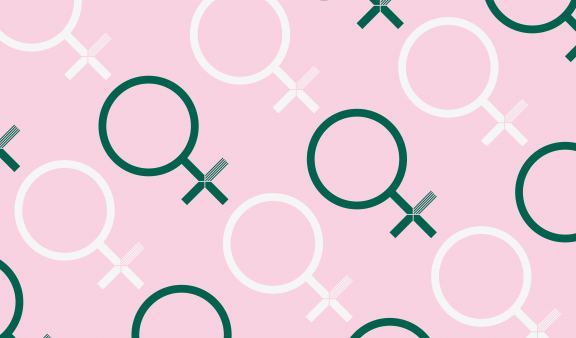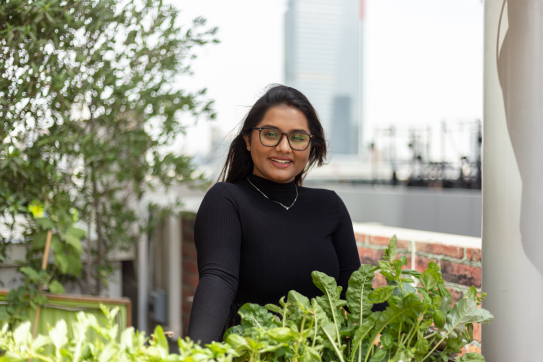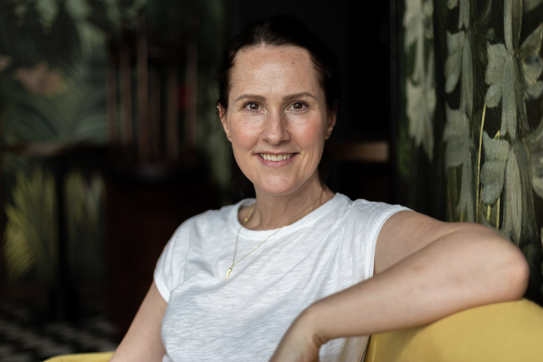
IWD 2022: Life and work with some of SQLI’s female superstars
In 1908, fifteen thousand women marched through the streets of New York demanding better pay, shorter hours and the right to vote - setting off a chain of events that would change the way women were viewed across the world, forever.
The first National Woman’s Day was observed in the US a year later, followed by the inaugural International Women’s Day (IWD) in 1911, which was honoured across Austria, Denmark, Germany and Switzerland.
One million women and men attended IWD rallies campaigning for women’s right to vote, to work, be trained, to hold public office and end discrimination. Tragically, less than a week later, 140 working women died in the Triangle Fire in New York City. This disaster only went to highligh the poor conditions and lack of regulation women were working under, meaning the US became the focal point for further IWD events in the future.
In 1914, on the eve of World War I and campaigning for peace, Russian women observed their first IWD, with the 8th March date soon agreed upon as the annual date for a global event..
Fast forward more than one hundred years and this date is now recognised as a global day celebrating the social, economic, cultural and political achievements of women and marking a call-to-action for accelerating women’s equality.
One of its missions is to “elevate and advance gender parity in technology and celebrate the women forging innovation.”
Here, SQLI speaks to three of its female team to find out more about their lives and views as women working in the tech sphere.

Oindrila Samanta, SQLI project manager in Dubai
What are your biggest achievements in both life and work?
My biggest achievement in life is getting married just a few weeks ago. I think marriage holds a lot of different meanings for people from culture to culture.
In my Indian culture you have to wear a sindoor, a marking on your head, when you marry to show you are now married. We also wear a wedding ring on our finger, like in many Western cultures.
However, not all women have the same opportunities or freedoms.
From a work point of view, my biggest achievement is working with SQLI. I moved from India where I worked as a project manager for a different company, to the UAE. If I didn’t have a progressive background, things may not have been this way for me.
On International Women’s Day, it’s important to highlight that there are women that don’t have the same privileges that I do. I am able to work, even after marriage, which is not the case for a lot of women, in India especially.
In my case, my husband and I were both working and knew each other’s families. I was also raised in the Middle East, so it wasn’t a problem working here, I just needed the right qualifications and experience.
Due to my background and upbringing, there has been no discrimination in having this way of life, but sadly it’s not the same for everyone.
What progress have you seen in gender equality throughout your life and work?
A while back when I was working in India, I had a male colleague message and call me through official working channels in the night, asking me what I was doing and if we could be ‘friends’. This was when I was in a senior position.
I went to HR and the person got reprimanded. But I think there are more policies in place today that stop this happening. I don’t think many men would do this now. Companies have progressed. But back then, especially in India, it was common for these boundaries to be crossed. If this had happened 20 years before this, I may not have even been able to report it. There wouldn’t have been the channels to go down, or it could have just been ignored. So, you can see how much progress has been made in this respect.
I’ve also had men shout out at me in the past in the street, but I feel it happens a lot less now. Things have definitely got better for women, society frowns at these type of things – men are better educated that degrading women or treating them like second class citizens is not acceptable behaviour. Plus women are more likely to stand up for themselves.
Is enough being done to encourage women into tech and digital retail?
More could be done at a grassroot level. There are still countries around the world where women aren’t getting an acceptable level - or even any - education.
More parents are happy for their children to go into technology now. It’s an acceptable career path with a secure future. Five years ago, this wasn’t the case.
In my experience – and at SQLI - women have equal opportunities for training and qualifications, but sadly not every company offers this.

Anne-Sophie Chellen, SQLI Mauritius office manager
What are your biggest achievements in both life and work?
In our culture in Mauritius, we don’t move out of our parents’ home until we are married - and if we don’t get married, we can end up living in our parent’s house for ever.
So, in my case, being able to move out and live on my own and be independent – while dealing with society’s comments – is one of the biggest achievements in my life. I’m so grateful that my parents have understood and fully supported me in this choice.
Even though I spent seven years working for a huge company in Mauritius, it was nothing more than ‘just a job.’ At SQLI, it’s totally different, I feel valued, respected and that I have a purpose. This gives me a great sense of achievement.
What progress have you seen in gender equality throughout your life and work?
Rugby is viewed as a masculine sport globally and many people are shocked when I tell them I play.
When I started around eight or nine years ago, my team was the only female rugby team in Mauritius! We had to compete with men because there was no other team to play.
Thankfully, over the years, the sport has grown and there are more girls and women showing an interest. There are now several female sides scattered all over the island.
When I was younger, I remember I was very impressed when I saw a woman on a board of directors, being managers, or even working in offices. Long ago, parents would give more importance to their sons’ education than to their daughters’.
With modernisation and education for all, women are now able to get the required education to hold significant roles for the smooth running of businesses.
Is enough being done to encourage women into tech and digital retail?
There is definitely stigmatisation, in my opinion. Tech and digital jobs are unfairly regarded as being a male career choice and I don’t see much being done to encourage women into the sector.
Education is key. While some jobs such as medicine and teaching are well-known, others are barely recognised. It is essential to educate students on opportunities within digital at the very beginning of their lives so that female students have enough confidence to pursue their tertiary studies in tech and digital fields and can then move into the job they would like.
Much more could be done to encourage women into these roles, but I believe the main thing is that they need to believe in themselves and never give up!
As Jennifer Lopez once said: “Doubt is a killer. You just have to know who you are and what you stand for!”

Tracy Postill, SQLI UK head of marketing and brand
What are your biggest achievements in both life and work?
One of my biggest work achievements was helping launch the BBC News Online, back in 1997. I had just started out in PR and was working for one of the top PR tech agencies at the time and they were riding the .com wave, winning big-named accounts like lastminute.com, Cisco, LG and many more. We won the BBC contract after a hard-fought competitive pitch.
For me, working on an iconic name like the BBC was a real privilege. Even back then they were vanguard - ushering in a whole host of online technologies way before anyone else that today form part of our everyday lives. In the late 90s, there were fewer than eight million people online in the UK. Today, the BBC is perhaps the most visited news site with roughly 1.5 billion monthly page views!
The PR head for the BBC was a fantastic lady, who taught me a lot. She was great to work with and appreciative of everything we did. That made us want to work harder for her. We got plenty of positive media attention globally, which was a key goal. After the launch, I received a postcard from her thanking me for my support and for doing a 'brilliant job'. Prior to the BBC account, I wasn't sure whether PR was the right career for me, but getting that postcard gave me the confidence that I needed. I've kept the postcard for posterity purposes - it's a constant reminder that it's the little gestures that count and can make a real difference and impact on someone's career. It doesn't hurt to say thank you or give recognition for a job well done. The benefits can be positive - both ways.
Personally, I know it's a bit cliché, but having my daughter was a huge achievement. Looking through life with her lens has taught me a lot - how to be more curious, importance of inclusivity, not to overthink things and be more confident!
Oh, and going onto the pitch as a mascot at Maine Road (Manchester City's former ground) when I was a youngster was pretty special too!
What progress have you seen in gender equality throughout your life and work?
I've been very fortunate throughout my career in that it has never been an issue for me. Maybe that's more to do with the marketing and PR industry, there has always been a good balance of women and men and even perhaps, more women.
I've worked with a few inspirational people - both male and female - in my career. What's interesting is that they all possess very common traits - they encourage you, they listen, they have integrity, they do not lead by force and allow you to make mistakes.
Generally, equality has come a long way but it's still out of balance. Men are still paid higher than women and often climb the career ladder much more quickly. Having spoken to my female colleagues and friends, hesitancy, and lack of self-belief - particularly after they've had children - can be a big factor. It's this self-doubt that prevents women from pushing for higher pay, career progression and a better work/life balance. We need to open up the dialogue, build confidence and help women reach their career ambitions.
Is enough being done to encourage women into tech and digital retail?
This is an interesting question - women do remain unrepresented in IT roles. There are huge gaps - education, workplace culture, retention and pay - and this paints a clear picture of the issues women face.
A colleague, for example, studied computer science at university and was one of a few females on her course. Once she graduated, she went on to a career in technology but was the only female on her course to do so.
Also, the pandemic has not helped with many women shouldering the increase in childcare burden, which undermines women's ability to progress their careers.
The tech and digital industry has a big challenge, but also an opportunity when it comes to gender diversity. It requires committed action from the industry as a whole - all coming together to help women realise their full potential. A good starting point is putting mechanisms in place across an organisation to help female leaders succeed in IT whether that's training, putting them on high visibility projects or providing a mentor.